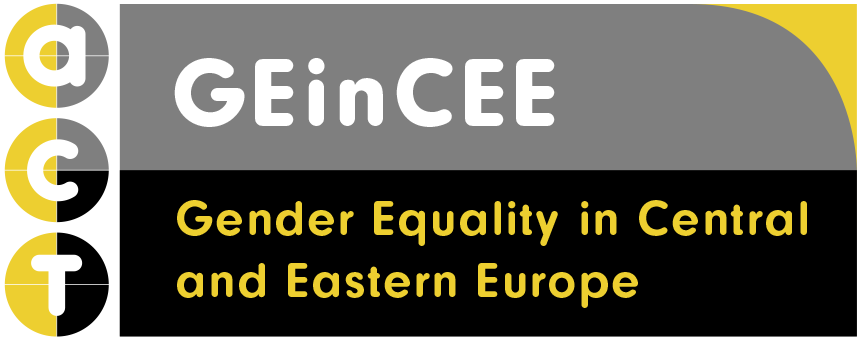
Over the spring and summer months, as the GEinCEE Community of Practice we hosted (and of course participated in!) several online meetings/webinars. Delving into the topic of university sustainability and preparing gender equality plans in Czechia and Slovenia has been thrilling!
Gabriela Langhammerová, a gender expert and a lecturer at the Institute of Sociology of the Czech Academy of Science (ISAS CAS) presented the process of implementing a gender equality plan (GEP) for ISAS CAS. As always, there were challenges (e.g. building political consensus to achieve substantive change, mobilising support and resources at the national level, mutual learning exercises and guidance). In turn, support of the highest management, a participative approach, as well as communication and dissemination of the whole process should be regarded as crucial to the success of GEP. Of course, at the international level, the recognition of GEP as an eligibility criterion in Horizon Europe was a game changer, but at the same national regulations cannot be overlooked. On 8th March 2021 Czech government approved the Gender Equality Strategy for the years 2021–2030. For instance, the government committed to supporting GEPs at research performing organisations. Financial support for the preparation of GEPs is also intended.
Milica Antić Gaber, PhD, a full professor at the Faculty of Arts of the University of Ljubljana, and a member of the expert forum of the European Institute for Gender Equality talked about developing GEP for the University of Ljubljana. She also noted the resistances that arose: problems with data collection, insufficient support from higher-level management, and – last but not least – a phenomenon of “gender equality fatigue” among researchers. One of the major areas of activity is the prevention of sexual harassment and gender-based violence. A special website with information on the above phenomenon was launched, an educational workshop was held, and “Guidelines for the Prevention of Sexual and Other Harassment, Violence and Bullying” were prepared. What is more, days of gender equality are held every year, with fifteen different events and over fifty speakers in 2021. As a result, the Faculty of Arts adopted gender equality initiatives as a part of its working plan, and the University of Ljubljana recognized the Faculty of Arts as an agent of broader change.
Agata Rudnicka, PhD from the Faculty of Management at the University of Lodz (Poland), professionally involved in the issues of social responsibility and sustainable development, who in 2021 was distinguished as one of the 25 sustainable development leaders by “Forbes Women”, gave us a presentation on Gender Issues – University on the Path to Sustainability. It is essential to realize that higher education institutions (HEIs) bear a particular responsibility to put into practice the idea of sustainable development, from which gender equality is inseparable. Sustainable development at HEIs encompasses activities in various areas – education, research, administration, and management. In the context of the gender dimension, these include issues related to diversity and inclusivity, gender-sensitive language, gender-sensitive education, work-life balance, and social entrepreneurship, among others. Undoubtedly, the preparation and implementation of gender equality plans (including the GEP for the University of Lodz) should be seen as a milestone on the road to sustainable universities and sustainable societies.
